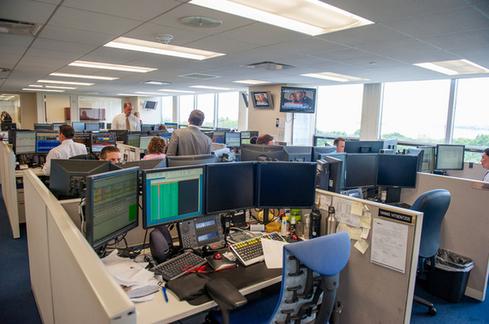12:25 PM
Financial Services: Are We Becoming Complacent About Systemic Risk?
More than five years have passed since the demise of Bear Stearns and Lehman Brothers, when the bottom fell out of the global financial markets. Chicken Little -- in the form of economists Nouriel Roubini and Dean Baker, strategy expert Med Jones, and investment manager Peter Schiff, among others -- warned that the sky was falling, but most people weren’t listening.
Is Chicken Little at it again? As history has demonstrated, the further away we move from a crisis, the less vigilant we tend to become in protecting against future shocks. A recent survey of financial firms conducted by DTCC suggests this phenomenon may be playing itself out when it comes to the attention currently being paid to mitigating systemic risk. In 2013, 37% of respondents felt that a high-impact market event was likely to occur in the next year, but that figure dropped to just 9% this year. Similarly, respondents who ranked the disruption of a key market participant as the top risk for their firm fell from 61% to 42%.
There could be many reasons for this change in perception among industry participants, and we may one day look back on this period as one of steady financial stability. Or this change could prove to be a deceptively calm period preceding the storm of yet another financial crisis. Only time will tell.
Regardless, it would be a shame if we did not learn and remember the most fundamental lesson from the 2008 crisis -- that we should never fall into a state of complacency because, even though it is only natural for people to let their guards down as they move further from a crisis, it is also the single biggest enemy of risk awareness.
If we are to avert or, at least, lessen the blows of future financial crises, we need to develop appropriate mechanisms to identify early warning signs and monitor emerging threats. It also requires a strong risk-sensitive culture that encourages thinking outside of the box, as well as testing and enhancing these response processes through tabletop exercises and other simulations to ensure actual resilience in case of a real-world event. But while monitoring early warning signs won’t enable us to anticipate every significant threat to the financial system, these types of mechanisms and focused efforts will help firms maintain a robust and nimble crisis response that can ease the impact of unforeseen events.
Finally, we need to embrace lessons from the past. For example, while it may have been difficult to anticipate the impact events like Superstorm Sandy or 9/11 would have on sustaining operations of the financial markets, these crises did underscore the necessity for contingency sites to be far enough apart from each other to make them impervious to a single event.
Unexpected risk events have been occurring for centuries and will continue to happen. We can’t predict when or where the next crisis will occur, but we can be ready for the unexpected by remaining vigilant, being mindful of the past, and being prepared for a “what if?” scenario suddenly becoming a reality.
Michael Leibrock is currently the Chief Systemic Risk Officer for The Depository Trust & Clearing Corporation ("DTCC") and has twenty six years of risk management experience at several U.S. and global financial institutions. In his current role Michael is responsible for the ... View Full Bio

















